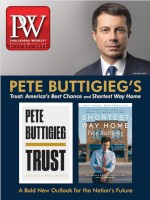Yanow chronicles youthful European hitchhiking escapades and complex sociopolitical choices in The Contradictions (Drawn & Quarterly, Sept.).
You fictionalized your life, but how accurate is your depiction of yourself as a character at age 20?
I think it’s emotionally accurate. There are moments based on things that actually happened—and at the time I was just so embarrassed. Over the course of working on this book and thinking about how I reacted in certain situations, I find it endearing. I have enough distance that I can look at it and say, “Oh, that’s kind of funny, actually.” But it’s almost like it’s a different person.
Did it feel more organic to take that approach?
I initially approached it as a memoir, but so much time had passed, and my memory is like a sieve. I also wanted to represent an emotional arc that didn’t really exist for me at the time.
It actually was a very inorganic process. I set some constraints that I was interested in trying out formally, which pushed me to end up writing fiction. This has less voice-over. It was the constraint of wanting to create something that was, I don’t want to say filmic, but less “telling.” I wanted to tell a story and show something happening and not editorialize so much.
Any thoughts on how you might have changed because of these experiences?
The title of the book summarizes my feelings about it; I learned that the world is complicated, but also that this was a time where I was learning about leftist ideology, which set off a big intellectual journey. I feel like some people might come to the book and think, “Well, that’s not what anarchism is,” or, “That’s not what communism is.” I’m kind of like, “Yeah. This is 20-year-olds talking about these subjects who are just trying to figure it out.”
Is Sophie’s journey in the book about finding your voice?
I think so. I’m someone who has anxiety about what other people think about me. I don’t know where that came from, and I don’t think that was always true, but at some point it became true. This story is about trying to unlearn that and figure out what I really believed in. I don’t think it comes to an exacting conclusion, but by the end you see, “Okay, maybe this person is on the trajectory where they are going to get it together.”



 Volume 267
Issue 30
07/27/2020
Volume 267
Issue 30
07/27/2020





